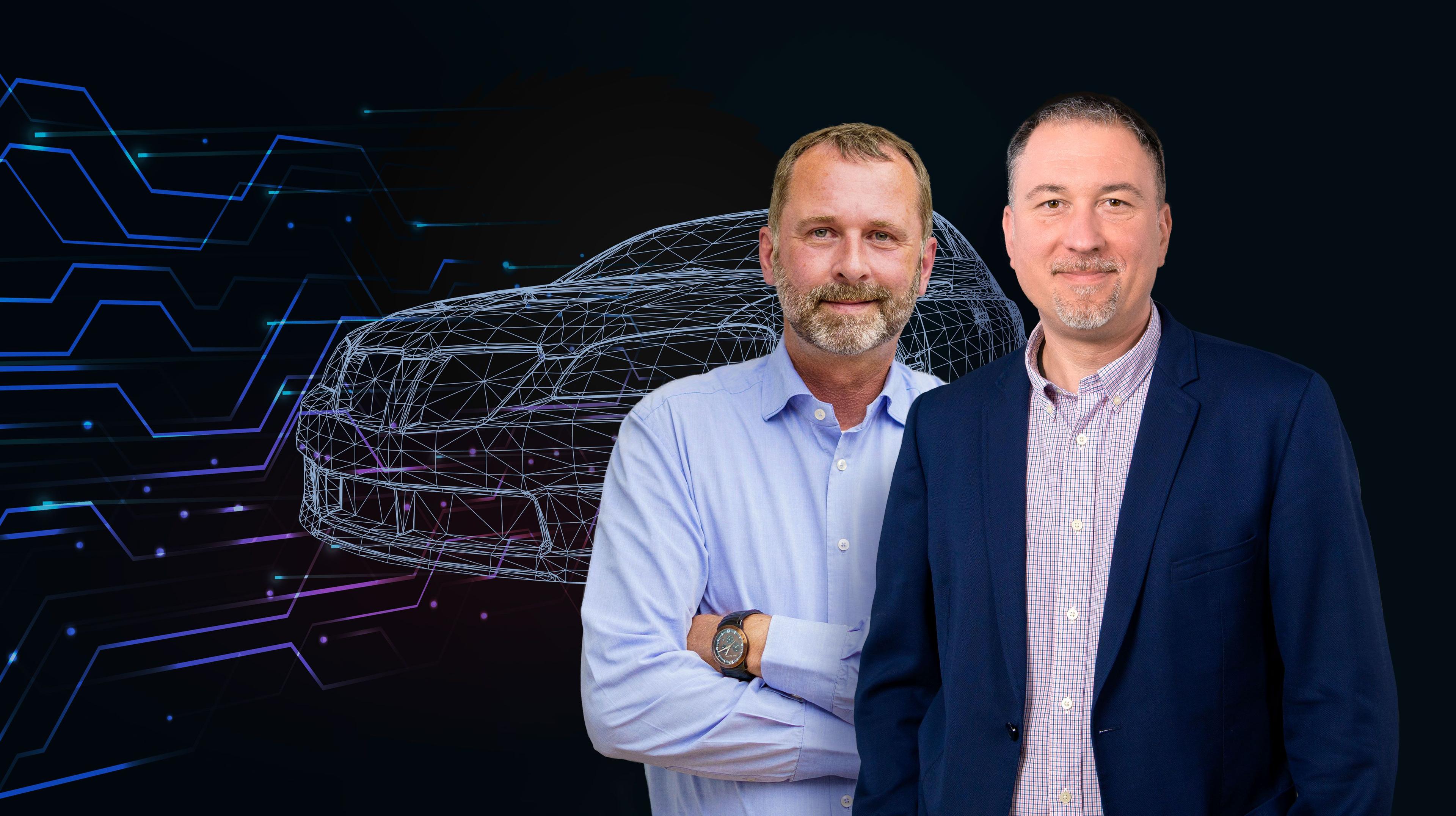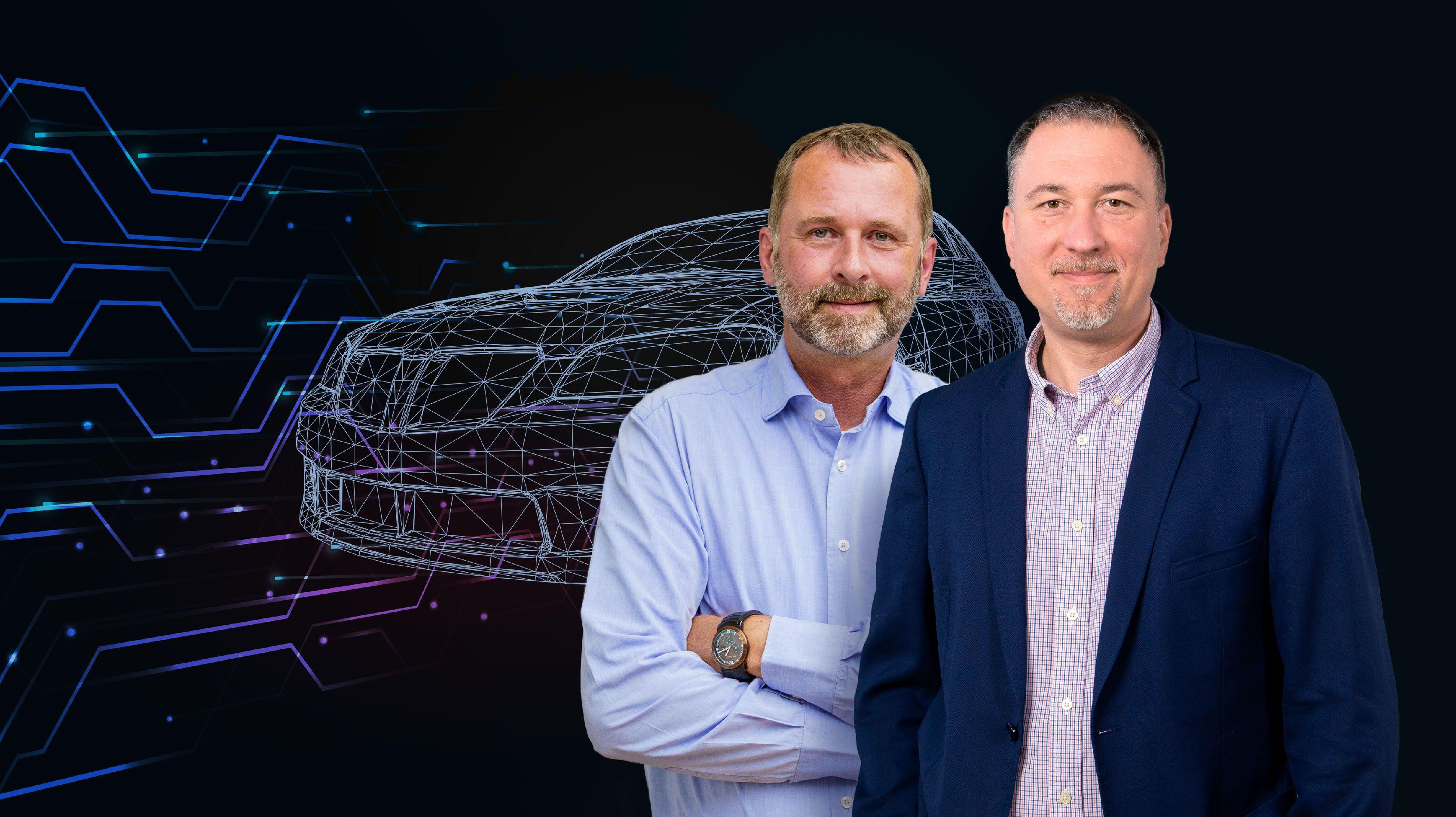
MakoLab at the 2nd Digital Revolution in Connected Cars, Munich
The 2nd Digital Revolution in Connected Cars conference, one of the year’s most important events for the sector, was held in Munich on 22nd and 23rd March. Over one hundred automotive industry experts came together in Munich for two days of discussions on the future of connected vehicles. MakoLab was represented by Thomas Schardt, the Managing Director of MakoLab GmbH and Marek Wodzisławski, Head of our Connected Vehicle Business Unit.
What were their key takeaways? Insights talked to Marek to find out. Read on to see what he shared with us!
Marek, you were at the 2nd Digital Revolution in Connected Cars conference, which attracts the car industry’s key players. What are your impressions of the event?
I do have to say that the format of the whole thing was really well thought out. The organisers kept the list of participants at around a hundred to a hundred and fifty people, all of them top industry professionals. We had the opportunity of networking with people representing the European sector, car manufacturers and numerous brands, including Kia, Ferrari and Ford Motor Company, to name just three.
We also had the chance to join panel discussions and have one-on-one conversations. Over the two days of the conference, that gave us a sense of being part of the community of connected vehicle professionals. It also let us explore the views and needs of other participants.
Were you able to establish some new business contacts?
Yes, indeed we were! We’d set up a number of meetings in advance, which led to some really fruitful discussions. Having our own space to hold them in was also a real plus. We held talks with representatives of Kia, Ferrari, McLaren, and Jaguar Land Rover, among others. We were showcasing MakoLab’s offering, and our main focus was online sales and connected services. The reaction was positive, and they were all interested in what we can offer them. So, we’re hoping for further developments with those newly established contacts.
You mentioned the discussion panels. You were actually on one of the panels yourself! Tell us something about it. What was the topic and who were your fellow panellists?
Yes, I was one of the panellists of four for The future of connected vehicles, market outlook, and industry forecast discussion. The others were Alex Nikolaev, the connected car and in-vehicle infotainment Manager for Kia Europe, Magnus Hölle, a connected vehicle data and privacy Specialist at Ford, and Dr Mario De Felice, Head of software architecture at Jaguar Land Rover.
As the title suggests, the panel concentrated on the future of connected vehicles and the discussion was divided into three main areas. The first was the future of connected cars in a three-, five- and ten-year time frame, including new technologies and business models. Then came new features on the market, their potential and the challenges in implementing them under current market conditions. Finally, we addressed the nature of the automotive market and monetisation opportunities. That was my part.

How did it go? What was the main thrust of the discussion and did you come to any interesting conclusions?
It was fascinating! So much so that it stretched from the planned forty minutes to one-and-a-half hours. The audience was really involved and asked so many questions.
We all agreed that the dynamics of the connected vehicles market mean we can only look two to three years ahead. On the other hand, when it came to technology, I highlighted three key things that will influence the development of cars; growing computing power, abstraction layers, which ensure faster times to market, and AI technologies.
There was also a lot of focus on the current market situation and the problems the automotive industry is facing… and there, opinions converged. The thinking is that the concepts that already exist in connected cars require a well-crafted user experience and that the sector needs to focus more on monetisation. In short, new features don’t encourage users. And products and services aren’t bringing in the expected profits.
The main reason underlying those challenges is that the automotive industry has slept its way through data monetisation. When we look at the statistics, we can see that major companies across industries are already making billions from it, while the automotive industry has lagged behind. With cars, monetisation can come from additional revenue or cost reduction. Projections have shown that, by 2030, a single vehicle could have the capability of bringing a company three hundred US dollars more in revenue per year, plus reducing costs by another two hundred per year. That’s a quite a figure, especially when we take the scale of the companies into consideration. Mind you, it’s worth noting that the prediction was halved some time ago. Why? Because of something I’ve already mentioned… the failure to focus on monetisation.
At the moment, when people talk about things ‘connected’, they mention three terms; ‘autonomous’, ‘shared’ and ‘electrified’. But I’ve proposed a new concept; Collaboration + Aim + Shape + Experience, which gives us CASE. The CASE approach covers issues that have received either too little attention so far or none at all. This is how it breaks down:
[he counts off the points on his fingers]
- Collaboration, in other words, embracing joint efforts with partners rather than reinventing the wheel for every new project;
- Aim, which means focusing on monetisation when new features are being created, then monitoring them and improving them if they don’t bring in the anticipated profits;
- Shape… or reshape. The automotive industry should be focusing on building cross-functional teams, including legal, finance, marketing, UX and development experts. Only units like that will be able to accelerate times to market. To meet market expectations, delivering new features should take weeks. At the moment, it takes months… or even years.
Ford Motor Company already includes lawyers on its teams and that enables them to address regulatory and legal issues more quickly. Much, much more is needed, though. - Experience, meaning user experience orientation, i.e. what users expect and not what our vision is. The key now is going to be focusing on UX and what can be achieved through hyper-personalisation, in other words, delivering tailor-made value to the individual user rather than the whole group.
Of course, while a new approach is being worked on, the basis for everything I’ve been talking about needs to stay focused on over-the-air updates, cyber security and protecting sensitive user data.
Did you also talk about the new features and trends we’ll be encountering before long in the connected vehicles sphere?
Yes. From a broader perspective, the most important focus is going to be on the time that the user gains thanks to autonomous vehicles and the features they offer. Something else that’s going to be significant is the shift to the hyper-personalisation, which is about concentrating entirely on the needs of a specific user and providing tailor-made solutions to what they want, rather than on the needs of an entire group or the vision that we, the service providers, have.
We also talked about the growing importance of engagement through the subscription model. This is a way of acquiring a car by subscribing to it for a period of time, like a year, for example, instead of buying it.
The event was attended by business leaders, OEMs, car manufacturers and so forth. What’s their attitude to the changes taking place?
They’d all like to get into data monetisation and they realise that connected vehicles are a suitable medium for that. It’s something they have in mind. In fact, to a large degree, the reason they took part in the event was to learn from the experiences of others in terms of what to do in order to achieve the desired results. In a nutshell, everyone is in favour of it and now it’s just a matter of time and of implementing new approaches.
One last question before we finish. What did you like most about the event? How would you sum it up?
The preparation and organisation were very well done. The closed formula for bringing together industry specialists and the meetings we set up enabled us to present MakoLab’s digital services solutions for the automotive industry, like online sales and connected service. We established some valuable business contacts and gained some insights into the viewpoints of other industry experts on how the future of connected vehicles is shaping up. I’m thrilled we could be part of it!

Inez Bartosińska
Digital Marketing Specialist




